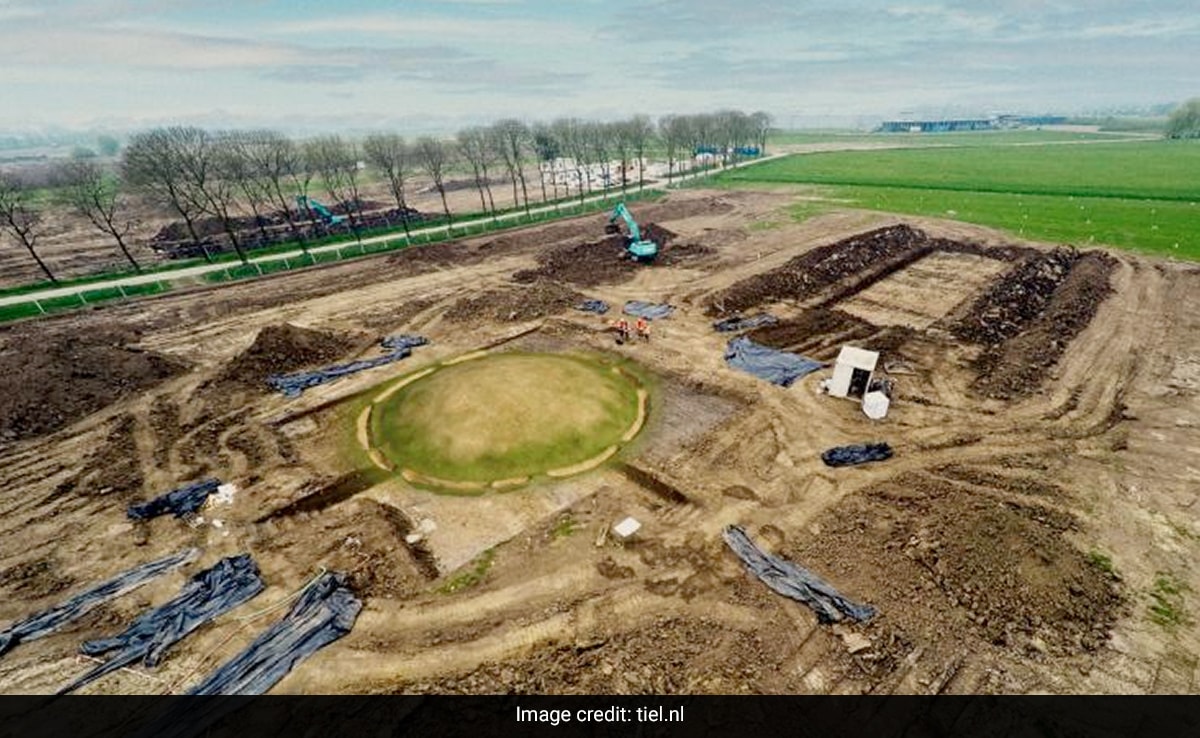

It's the oldest bead ever found in the Netherlands.
Dutch archaeologists on Wednesday announced the discovery of a 4,000-year-old religious site in the Netherlands which included a burial mound serving as a solar calendar, according to a report in Phys.org.
The burial mound contained the remains of around 60 men, women and children. It had several passages which served a solar calendar as the sun directly shone on the longest and shortest days of the year.
“What a spectacular archaeological discovery! Archaeologists have found a 4,000-year-old religious sanctuary on an industrial site,” the town of Tiel said on its Facebook page.
“This is the first time a site like this has been discovered in the Netherlands,” it added in a statement.
Diggings around the open-air sanctuary started in 2017 in a village about 50 kilometres southeast of Utrecht, and the findings were announced on Wednesday.
The archaeologists unearthed three burial mounds in their excavations. The main mound is about 20 metres in diameter with its passages lined up to serve as a solar calendar.
“People used this calendar to determine important moments including festival and harvest days,” the archaeologists said.
New Zealand's Deputy Prime Minister and Foreign Minister Winston Peters has arrived Kathmandu on his…
The Indian Army and the Mongolian Armed Forces will commence the 17th edition of their…
Pandi Ram Mandavi, a renowned artist from Bastar, Chhattisgarh, was conferred the Padma Shri award…
Taiwan's Mainland Affairs Council (MAC) criticised China on Wednesday for organising two summits for Taiwanese…
The East Turkistan Government in Exile (ETGE) vehemently denounces Mr. Francesco Frangialli, the Honorary Secretary-General…
Chairman John Moolenaar and Ranking Member Raja Krishnamoorthi of the House Select Committee on the…